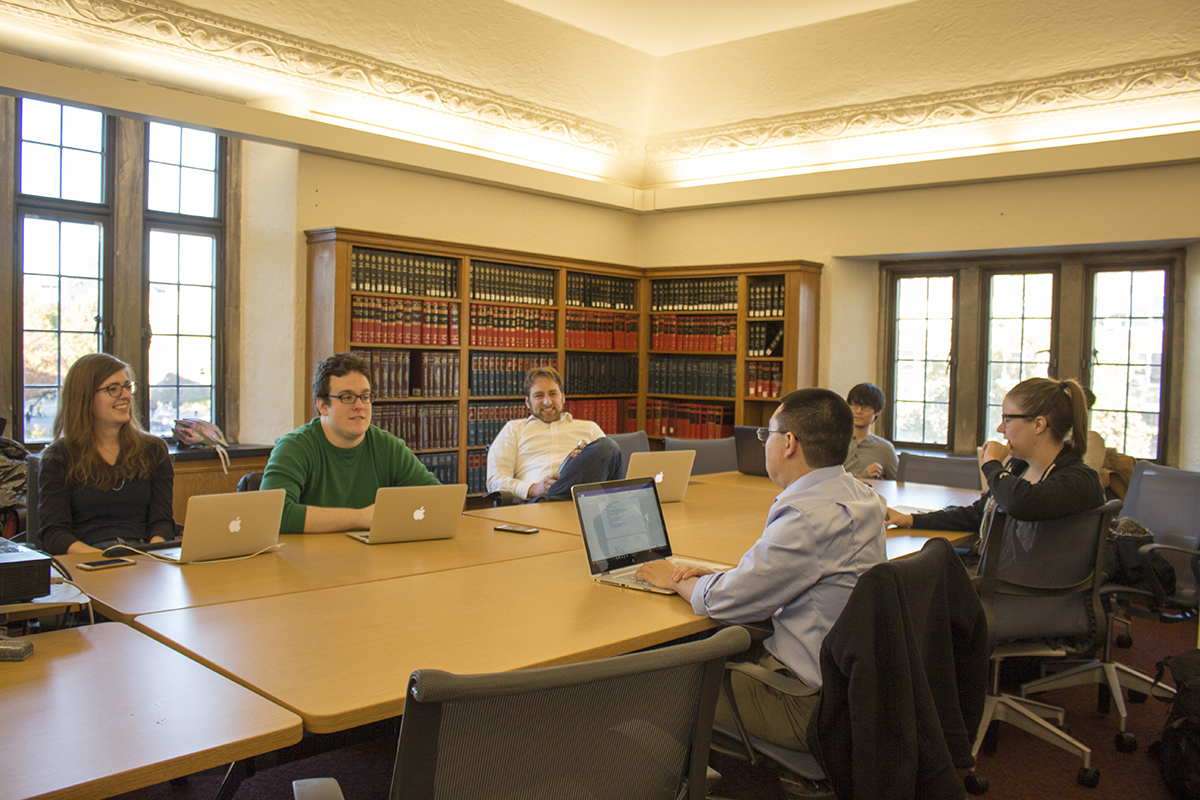Law students resolve questions for residents, nonprofits
By Melanie Lefkowitz

A new legal clinic offers law students real-world experience while helping members of the community who may not be able to afford legal help.
Eight second- and third-year law students are participating in the Cornell Legal Research Clinic, a three-credit course offered through the Law Library. The students help local residents, nonprofit organizations and entrepreneurs who have specific questions but do not require full legal representation.
Students also work with public-interest lawyers who need legal research assistance. These students regularly staff tables at Rev: Ithaca Startup Works and Loaves and Fishes, and research answers to questions ranging from how to incorporate a new business to how to deal with landlord-tenant disputes.
“I was teaching first-year students, and trying to create problems for them to research – and then I thought, the world is full of real problems, and yet we’re trying to construct artificial issues,” said Amy Emerson, director of the Legal Research Clinic, now in its third semester. “At the same time, we had people from the community coming into the library with legal questions, but librarians are not supposed to give legal advice.
“This seemed like a way to bridge that gap – to meet the community’s needs while giving students the best, most practical experience that we can.”
This year the clinic received an Engaged Cornell Curriculum Grant, which funds a co-instructor, Jonathan Feldman of the Empire Justice Center in Rochester, and a part-time administrative assistant, Laura Kipfer. Under the terms of the grant, the clinic formally partners with two organizations: Rev and the Human Services Coalition of Tompkins County, an umbrella organization for several local nonprofit groups. The clinic also works with people outside those groups.
“The cool thing about our clinic is we can so readily engage with the community, and also have a very real impact,” said Christine Jordan, J.D. ’17, who is in her second semester with the Legal Research Clinic. “Help with a simple question can really change their circumstances, and it gives you a real sense of satisfaction to help people who otherwise wouldn’t have access.”
The broad range of topics is what makes this legal clinic unique, said Emerson, who created and co-teaches the clinic. Most clinics focus on a defined area of law, forcing them to turn away requests outside of their specialty. In this clinic, students and their instructors (students cannot give legal advice, so the instructors, who are attorneys, are always present) research and offer answers in many areas of law to specific questions, large or small.
“It really helps the law students to expand their horizons,” Feldman said.
At Rev, law students have helped entrepreneurs research issues such as equity crowdfunding, immigration and alternative currencies, said Tom Schryver, its director.
“They’ve done some really cool deep digging that was very helpful to our program,” he said. “And now they’re working more directly with individual startup companies, which we think is an important resource to be able to provide to the companies in our community.”
Melanie Lefkowitz is staff writer, editor and social media coordinator for Cornell University Library.
Media Contact
Get Cornell news delivered right to your inbox.
Subscribe